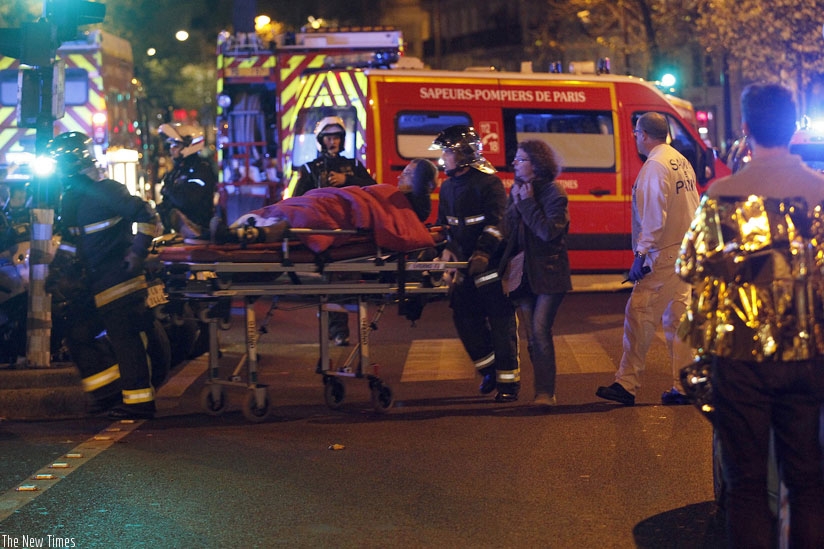Editor, RE: “The Burqa and French values” (The New Times, August 26). In the name of secularism and women’s equality, the French are tying themselves in all sorts of knots. How do you push principles to the ridiculous point where those same principles are in flagrant violation of the same principles?


Editor,
RE: "The Burqa and French values” (The New Times, August 26). In the name of secularism and women’s equality, the French are tying themselves in all sorts of knots. How do you push principles to the ridiculous point where those same principles are in flagrant violation of the same principles?
Is it secularism or equality when you begin legislating on what a woman may or may not wear, especially if other religion-mandated behaviour, such as nuns’ habits, head coverings and crosses can be worn in similar circumstances and locations without attracting the same official ire?
But then, why would we be surprised by anything coming out of Mitterrandland, where involvement in genocide is considered fully acceptable in alleged defence of the French language and a self-declared French zone of influence in Africa?
The French’s real problem is to want to continue to pretend to live a contradiction: that theirs is a large house that accommodates a widely varying multitude of cultures under one roof while requiring all to conform to a certain idea (largely imaginary in reality) of a homogeneous French society.
It is just impossible to have homogeneity as well as a multiplicity of cultures in the same polity at once. And while this problem is more pronounced in France because of their attempts to legislate on it while pretending they want to respect freedom of religion (an impossibility), the same problem of contradictions in claimed principles and bitter reality is apparent all across the Western world.
Mwene Kalinda
*********************
Editor,
As a matter of fact there is neither cultural model — nor the ideal of the French Republic, nor that of British communitarism — that seems to work with the perfect satisfaction of all citizens.
I support the French model because I think confessional religious values transcend the common ground of the republic which is a kind of a civil religion proposed by Jean-Jacques Rousseau in his famous essay on the social contract.
Although I myself belong to the Roman Catholic Church, I don’t think that all citizens may live peacefully together on the exclusive basis of this religion. Other citizens whose religious belief may be different may not feel integrated if one religion is imposed upon social life.
Unfortunately, a great deal of Muslim countries does not come to similar conclusions. In Saudi Arabia, Iran or even in the modern Emirates, a Christian woman has to comply with a dress code that does not correspond to her own principles. As a woman, you don’t have the liberty to choose while men are allowed to wear Western clothes such as jeans and T-shirts and so on.
Never before equal rights of men and women have been ridiculed by the false assertion that the Prophet had fixed women’s appearance in public by a certain dress code.
And by accepting the wrong idea that women’s dignity has to be protected against wild machismo by imposing a cloth order to only this sex you dare not ask whether men’s secondary sexual characteristics are not hidden against female lust.
It is the old reactionary pattern of men’s offensiveness and women’s defensiveness that is working in this dress code. I would have no objections if a veil or a hijab belonged to women’s and men’s accessories.
Kian-Harald Karimi


